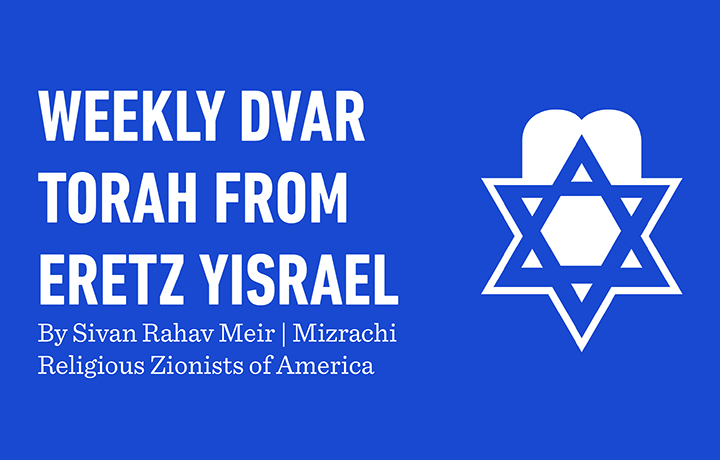Gentle Speech
By Sivan Rahav-Meir
Even in the heat of an argument, we must pay attention to what we say and how we say it. The language which we use is important and powerful and might exacerbate the situation. This week’s portion (Va’etchanan) describes the giving of the Tablets of the Law for the second time. The first time, the people made a golden calf after the giving of the Torah, and Moshe broke the Tablets. What happened there, in those moments? How did Moshe Rabbeinu hear up there, on the summit of Mt. Sinai, that the people below made a calf? In this portion, Moshe recreates that time in the ears of the people: “And the L-rd said to me: ‘Arise, get down quickly from here; for your people that you brought forth out of Egypt have behaved corruptly; they are quickly turned aside from the way which I commanded them; they have made themselves a molten image.’” Why does G-d say only here “they have made themselves a molten image”? Indeed, they made a molten calf, and prostrated themselves before it and worshiped it. Why choose a minimalist, gentle, distant wording like this? In the wonderful book, Sha’arei Aharon, I found the following explanation:
“It is said ‘they have made themselves a molten image,’ and the reason that He did not say ‘a molten calf’—was that He spared their honor because this thing was very shameful for them.”
That is, G-d did not say explicitly what the grave sin was but rather chose a gentler way of saying it. Here, even when we talk about the famous golden calf, we see that G-d resisted using the central word, “calf,” to spare the honor of those who sinned. If there is a connection, a covenant and a shared future, and if we want to forgive and keep going together, we must not mention all the sins and detail all the mistakes. On the contrary. It is better to blur and minimize them, not to humiliate and bring up long forgotten things.
This Shabbat is called Shabbat Nachamu (Shabbat of Consolation). Every year, we read about consolation on the Shabbat after Tishah B’Av in the haftarah, which begins: “Nachamu, nachamu ami” (Be consoled, be consoled, my people) (Yishayahu 40:1). This week’s Torah portion of Va’etchanan has a consoling aspect as well.
This is the farewell speech of Moshe Rabbeinu to the people, and to us as well. He does not continue with us to the Land of Israel, but he teaches us about the privilege of living in it, “a land flowing with milk and honey” (Devarim 6:3).
Moshe repeats the Ten Commandments and reminds us that no matter how much the world is shaken up, there is still a human conscience and fundamental values: honor your father and mother, do not steal, do not commit adultery, keep Shabbat, do not worship idols. Countless times throughout the generations, other nations and ideologies will try to erode these basic principles, but on Shabbat we will read them again.
Other seminal verses appear. Chief among them is the Shema: “Hear O Israel, the L-rd our G-d, the L-rd is One” (Devarim 6:4). This verse has been repeated billions of times throughout the millennia, but this is the first time it appears in our nation’s history.
Amidst the wars, politics, and the oppressive heat, we will take advantage of our annual invitation to open the last will and testament of Moshe Rabbeinu to find consolation and comfort there. n
Sivan Rahav-Meir is the World Mizrachi Scholar-in-Residence and an Israeli journalist and lecturer. She is a member of the Mizrachi Speakers Bureau (Mizrachi.org/speakers).













